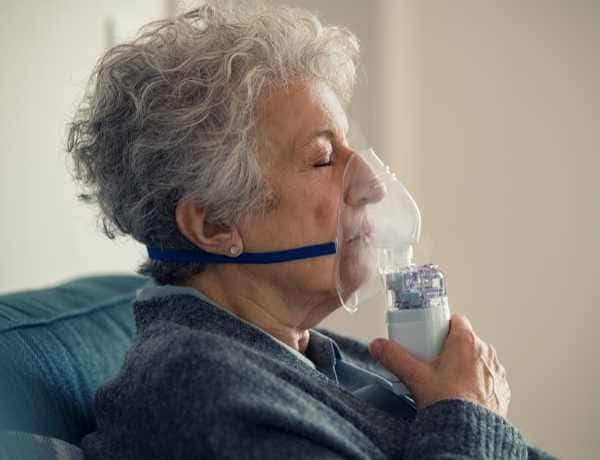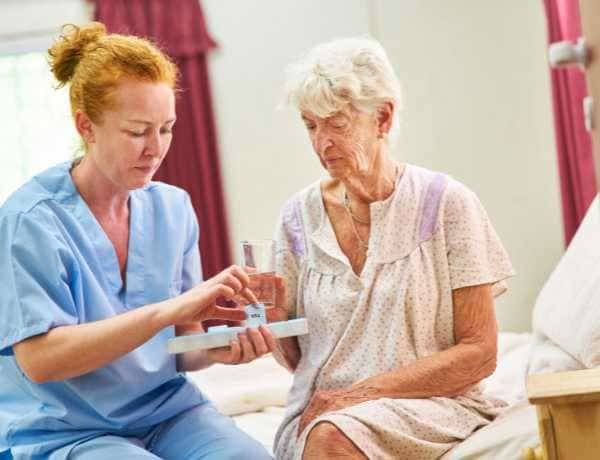Toll Free: (866) 907-1145
Local: (919) 833-3370
Toll Free: (866) 907-1145
Local: (919) 833-3370
Nursing homes are often associated with a higher risk of infections due to the close proximity of residents, weakened immune systems, and the presence of underlying health conditions. Some of the most common infections in nursing homes include:
Urinary tract infections (UTIs) are common infections in nursing homes, affecting up to 50% of residents. However, they can lead to serious complications and even death if left untreated. As a caregiver or family member of a nursing home resident, it's important to understand the causes, symptoms, and prevention of UTIs in this vulnerable population.
There are several factors that contribute to the high incidence of UTIs in nursing homes. These include:
UTIs in nursing homes can present differently than in younger, healthy individuals. Common symptoms include:
Prevention is key when it comes to UTIs in nursing homes. Here are some steps that caregivers and family members can take to reduce the risk of infection:

Pneumonia is a serious respiratory illness that can affect people of all ages. However, it is particularly dangerous and common infection in nursing homes. Pneumonia is a leading cause of death in nursing home residents, and it can be difficult to diagnose and treat.
There are many factors that can contribute to the development of pneumonia in nursing homes. These include:
The symptoms of pneumonia in nursing home residents can be difficult to detect, as they may be similar to other respiratory illnesses or may be masked by existing health conditions.
The treatment of pneumonia in nursing home residents depends on the severity of the illness and the underlying health conditions of the patient. Treatment options may include:
Preventing pneumonia in nursing homes requires a multi-faceted approach. Some key prevention strategies include:
Influenza, commonly known as the flu, is a contagious respiratory illness that can cause severe complications, especially in vulnerable populations like nursing home residents. Influenza infections in nursing homes can lead to hospitalizations, increased morbidity and mortality, and significant economic burden.
Nursing home residents are at high risk of contracting influenza due to their age, underlying health conditions, and close living quarters. Influenza outbreaks in nursing homes can quickly spread, leading to severe complications and death. According to the Centers for Disease Control and Prevention (CDC), between 70-85% of seasonal flu-related deaths occur in people aged 65 years and older.
Preventing influenza outbreaks in nursing homes requires a multi-faceted approach, including vaccination, infection control measures, and early detection and management of cases.
Annual vaccination is the most effective way to prevent influenza in nursing homes. The CDC recommends that all nursing home residents and staff receive the influenza vaccine every year. Vaccination not only protects individuals but also reduces the spread of the virus within the facility.
Infection control measures are critical in preventing the spread of influenza in nursing homes. These measures include frequent hand hygiene, respiratory etiquette, and environmental cleaning and disinfection. Nursing homes should also consider implementing visitor restrictions during outbreaks to prevent the introduction of the virus.
Early detection and management of influenza cases are crucial to prevent outbreaks in nursing homes. Nursing home staff should be trained to recognize the signs and symptoms of influenza and promptly isolate suspected cases. Antiviral treatment should be initiated as soon as possible to reduce the severity of the illness and prevent further spread.
The COVID-19 pandemic has affected every aspect of our lives, including how we care for our elderly population. Nursing homes have been hit particularly hard by the virus, with many residents and staff members becoming infected.
Nursing homes have been at the forefront of the COVID-19 pandemic since the beginning. The elderly population is particularly vulnerable to the virus, and nursing homes are often overcrowded and understaffed, making it difficult to contain the spread of the virus. Many nursing homes have struggled to provide their residents with the necessary care and resources to prevent the spread of the virus.
There are several steps that can be taken to prevent the spread of COVID-19 in nursing homes. The first and most important step is to provide adequate personal protective equipment (PPE) to staff members. This includes masks, gloves, and gowns, which are essential for preventing the spread of the virus.
Another important step is to implement regular testing for both residents and staff members. This can help to identify cases early and prevent the spread of the virus. In addition, nursing homes should have a plan in place for isolating residents who test positive for COVID-19 to prevent further spread.
Finally, nursing homes should prioritize communication with residents and their families. This can help to ease anxiety and keep everyone informed about the steps being taken to prevent the spread of the virus.
Nursing homes are supposed to be safe havens for the elderly and vulnerable. Unfortunately, skin infections can be a common occurrence in these facilities. Skin infections can be painful and even life-threatening, especially for those with weakened immune systems.
There are several reasons why skin infections can occur in nursing homes. One of the most common causes is poor hygiene. When residents are not bathed or have their clothing changed regularly, bacteria and fungi can grow and cause infections.
Preventing skin infections in nursing homes requires a multi-faceted approach. First and foremost, proper hygiene practices must be followed. This includes regular bathing, changing clothes and bedding, and proper hand hygiene. Staff members must also be trained on how to properly use and maintain catheters to prevent infections. Additionally, residents with weakened immune systems should be closely monitored for any signs of infection and provided with appropriate treatment.
Infection control measures are essential in preventing the spread of skin infections in nursing homes. This includes proper cleaning and disinfection of surfaces and equipment, as well as the use of personal protective equipment such as gloves and gowns. Staff members must also be trained on how to properly handle and dispose of contaminated materials.
Bed sores, also known as pressure ulcers, are a common problem in nursing homes. These painful and often preventable injuries can cause serious health problems for elderly residents. Here's what you need to know about bed sores in nursing homes.
Bed sores are injuries to the skin and underlying tissues that occur as a result of prolonged pressure on the skin. They commonly occur in areas where the skin is in contact with a bed or chair for extended periods, such as the back, buttocks, hips, and heels.
Bed sores are a common problem in nursing homes because elderly residents often have limited mobility and spend a lot of time in bed or sitting in chairs. If nursing home staff members do not take proper precautions to prevent bed sores, they can easily develop.
Nursing homes have a responsibility to prevent bed sores from developing in their residents. Some ways to prevent bed sores include:
If a resident in a nursing home develops a bed sore, it is important to treat it promptly to prevent further damage and complications. Treatment may include:
If a nursing home resident develops a bed sore due to neglect or abuse by nursing home staff, legal action may be necessary. Families can hire an elder law attorney to file a lawsuit against the nursing home for negligence, which can result in compensation for medical expenses, pain and suffering, and other damages.

Clostridium difficile, commonly known as C. difficile, is a bacterium that can cause severe diarrhea and inflammation of the colon. While anyone can be affected by C. difficile, older adults and those with weakened immune systems are at higher risk. Nursing homes are particularly vulnerable to outbreaks of this infection due to the close living quarters and frequent contact between residents and staff. Here's what you need to know about C. difficile in nursing homes:
Nursing home residents are often older adults with weakened immune systems, making them more susceptible to infections like C. difficile. In addition, nursing homes are high-density facilities, with many residents living in close proximity to each other. This can make it easier for the infection to spread from person to person or through contact with contaminated surfaces.
Preventing C. difficile outbreaks in nursing homes requires a multi-faceted approach. Some strategies that have been effective include:
Signs of a C. difficile outbreak in a nursing home may include an:
Nursing home staff should be vigilant for any signs of an outbreak and should report any suspected cases to public health authorities.
There are a few reasons why nursing homes have seen an increase in infections, particularly during the COVID-19 pandemic:
Nursing homes are home to a vulnerable population, including elderly individuals and those with underlying health conditions, who are more susceptible to infections.
Residents of nursing homes often live in close quarters, which can make it easier for infections to spread.
Staff shortages in nursing homes can lead to increased workload and stress for employees, which may lead to lapses in infection control measures.
During the COVID-19 pandemic, there were shortages of personal protective equipment (PPE), which made it difficult for nursing homes to adequately protect their residents and staff.
Visitors to nursing homes can inadvertently bring infections with them, especially if they are not following proper infection control protocols.
Many infections, including COVID-19, can be spread by individuals who are asymptomatic, making it difficult to identify and prevent outbreaks.
To address these challenges, nursing homes have implemented stricter infection prevention and control measures, such as:
Vaccination efforts have also been prioritized for residents and staff in nursing homes to help prevent the spread of COVID-19.
If your loved one keeps getting infections at their nursing home, there are several steps you can take:
Speak with the staff at the nursing home about your concerns and ask what steps they are taking to prevent infections. Be sure to keep records of any conversations and follow up in writing if necessary.
If you feel that your loved one's care is not adequate, speak up and advocate for them. This may include requesting additional testing or treatment, or requesting a transfer to a different facility.
If your loved one is experiencing frequent infections, it may be helpful to consult with their healthcare provider to determine if there are underlying health conditions that are contributing to their susceptibility to infections.
If you feel that your loved one's health and safety are being compromised due to negligence or nursing home abuse, you may want to consider consulting with a nursing home abuse lawyer to determine your options for legal action.
Stay up-to-date on the latest information and guidelines related to infection prevention and control in nursing homes. This can help you better understand the steps being taken to protect your loved one's health and safety.
Overall, it is important to be proactive in advocating for your loved one's health and safety, and to work closely with the staff at the nursing home to ensure that they receive the care they need.
If you think you or your loved in experiencing nursing home infections due to neglect or abuse, The Law Offices of John M. McCabe can help. Contact our nursing home neglect lawyers for a FREE consultation.
Attorney Advertising | Prior results do not guarantee a similar outcome. The information on this website is for general information purposes only. Nothing on this site should be taken as legal advice for any individual case or situation. This information is not intended to create, and receipt or viewing does not constitute, an attorney-client relationship. This site is protected by reCAPTCHA and the Google Privacy Policy and Terms of Service apply.